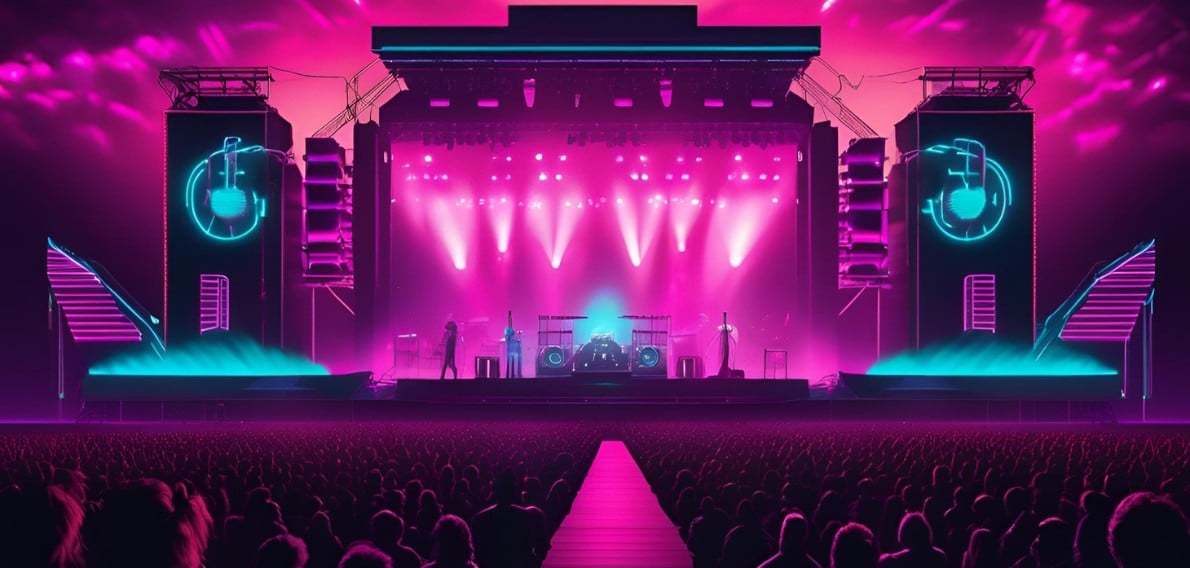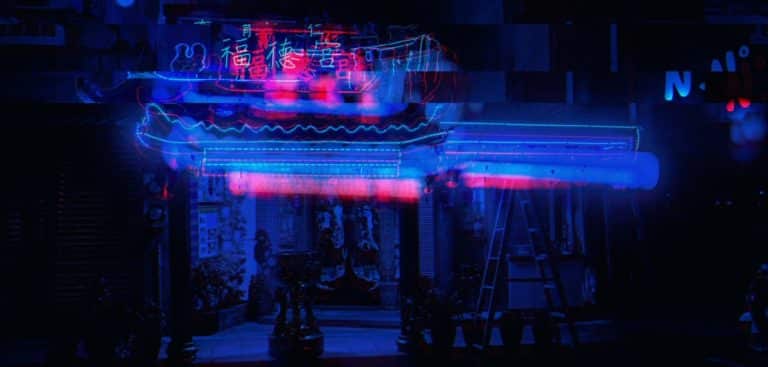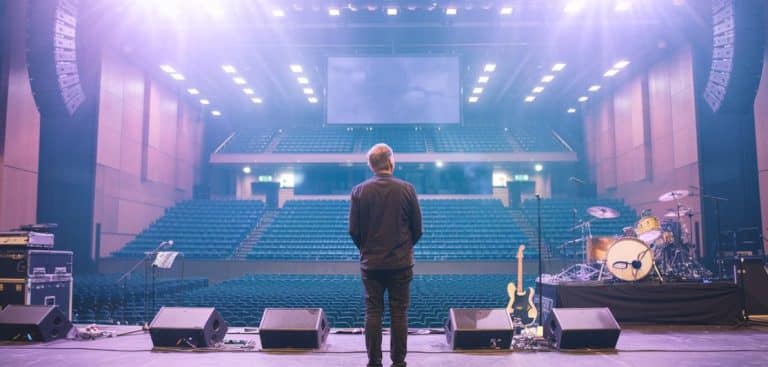Stage management forms the cornerstone of successful live performances, from intimate theater productions to massive music festivals. This guide is a new edition, providing updated information and resources for stage managers. As we navigate through 2025, the role of stage managers has evolved dramatically, incorporating new technologies and methodologies while maintaining the timeless principles that make live events magical. Whether you’re an aspiring stage manager or a seasoned professional, this comprehensive guide will walk you through everything you need to know about modern stage management.
Understanding Stage Management: The Foundation of Live Performance

Stage management is the intricate art of coordinating all aspects of a live performance, ensuring seamless execution from initial planning to final curtain call. Modern stage managers serve as the vital link between performers, technical crews, production teams, and front-of-house staff, effectively managing the entire company, including cast and crew members, to orchestrate the countless elements that bring a show to life.
Also Read: Your Essential Stage Manager Checklist
Core Functions of Stage Management
The foundation of stage management begins with pre-production planning, where professional stage managers develop detailed production schedules, coordinate with various departments, and establish clear communication channels throughout the organization. During the rehearsal phase, professional stage managers take on the crucial role of organizing and managing rehearsals, overseeing schedules, meticulously tracking changes, and maintaining comprehensive production documentation.
When it comes to performance execution, they become the backbone of the show, calling cues with precision, managing backstage operations efficiently, and handling any unexpected issues that arise. Post-show responsibilities round out their duties, including coordinating strike, maintaining detailed show reports, and organizing productive post-production meetings to ensure continuous improvement.
Pre-Production and Rehearsal Process

The pre-production and rehearsal phases are critical to the success of any live performance. During pre-production, stage managers lay the groundwork for the entire production, coordinating with directors, designers, and technical crews to develop a comprehensive plan. This phase involves creating detailed schedules, organizing meetings, and ensuring that all departments are aligned with the production’s vision.
In the rehearsal phase, stage managers take on the role of meticulous organizers and communicators. They oversee the rehearsal schedule, track changes to the script and blocking, and ensure that all elements of the production are progressing smoothly. This phase is also when stage managers begin to compile the calling script, ground plan, and run sheets, which are essential for the seamless execution of the performance.
Modern stage managers leverage a variety of tools and software to streamline these processes. From digital scheduling platforms to advanced communication tools, these technologies enhance efficiency and ensure that every aspect of the production is meticulously planned and executed. By utilizing these resources, stage managers can focus on the creative and logistical challenges of bringing a production to life, ensuring that rehearsals run smoothly and that the final performance is a success.
Stage Management Trends and Innovations in 2025
Digital Revolution in Stage Management
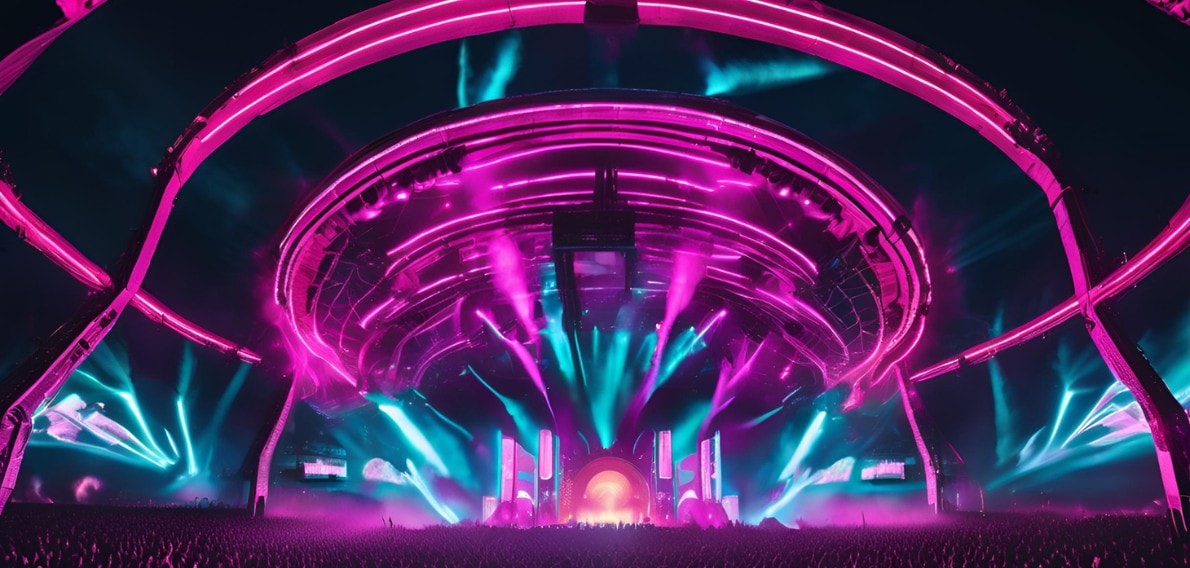
The digital transformation has revolutionized how stage managers operate, introducing sophisticated tools that streamline workflows and enhance efficiency.
Obtaining detailed information about sound cues from designers is crucial to ensure a smooth rehearsal process and address any technical needs that may arise during production. Modern production management software has evolved significantly, leading the way in real-time production timeline management with AI integration, biometric capabilities, mixed reality support and more.
Technical integration tools have reached new heights of sophistication, with cutting-edge developments in lighting control systems, show control systems, and live audio. These advancements have fundamentally changed how stage managers approach their daily operations and long-term planning strategies.
Also Read: Live Music Event Trends in 2025 That Event Organizers Should Know About
Stage Management Tools and Software

In today’s digital age, stage managers have a wide range of tools and software at their disposal to streamline their workflow and improve communication with the production team. Here are some essential stage management tools and software:
- Stage Management Software: Programs like StageWrite, StagePlot, and Showbiz Software offer comprehensive platforms for stage managers to manage rehearsals, performances, and production details. These software solutions provide features such as scheduling, contact management, and reporting, allowing stage managers to keep track of every aspect of the production in one place.
- Communication Tools: Collaboration tools like Slack, Trello, and Asana enable stage managers to communicate effectively with the production team, share files, and assign tasks. These tools facilitate real-time communication and ensure that everyone is on the same page, reducing the risk of miscommunication and errors.
- Script Analysis Software: Software like Script Analysis and Play Analysis help stage managers analyze scripts, identify themes, and track character arcs. These tools provide valuable insights into the script, allowing stage managers to better understand the narrative and make informed decisions during rehearsals.
- Props and Set Design Software: Programs like SketchUp and Autodesk enable stage managers to create 3D models of sets and props, facilitating communication with designers and production teams. These tools allow stage managers to visualize the set and make adjustments as needed, ensuring that the final design meets the production’s requirements.
- Sound and Lighting Software: Software like QLab and LightFactory allow stage managers to program and control sound and lighting cues, ensuring seamless execution during performances. These tools provide precise control over technical aspects, allowing stage managers to create the desired atmosphere and enhance the overall experience for the audience.
Also Read: Best Apps for Stage Managers for Music Festivals: The Ultimate Guide in 2025 – A Comprehensive Resource
By leveraging these tools and software, stage managers can optimize their workflow, reduce errors, and focus on the creative aspects of the production. These technologies not only enhance efficiency but also enable stage managers to deliver high-quality performances that captivate audiences.
Remote and Hybrid Event Management
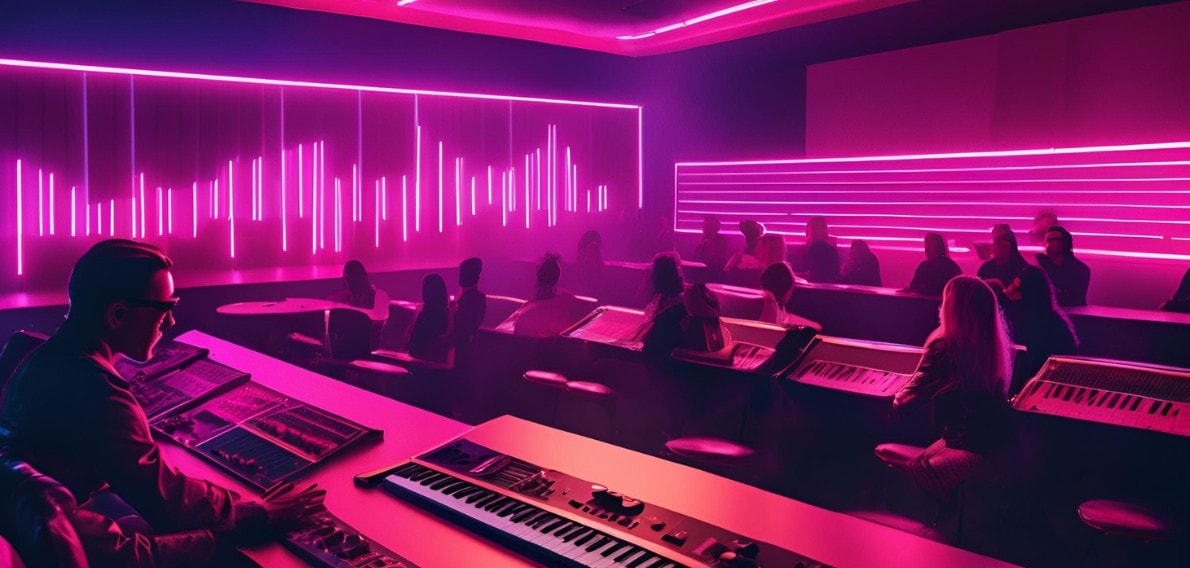
The landscape of live events has evolved dramatically, requiring stage managers to master holographic conferencing platforms and understand the intricacies of quantum streaming technology. Virtual and augmented reality audience engagement has become a crucial skill, alongside the ability to coordinate global technical teams effectively. The implementation of quantum-encrypted backup systems ensures show continuity across multiple platforms and locations, while maintaining the highest standards of security and reliability.
Also Read: Hybrid Events: 5 Important Considerations To See If It’s Right For You And Your Audience
Sustainable Stage Management Practices
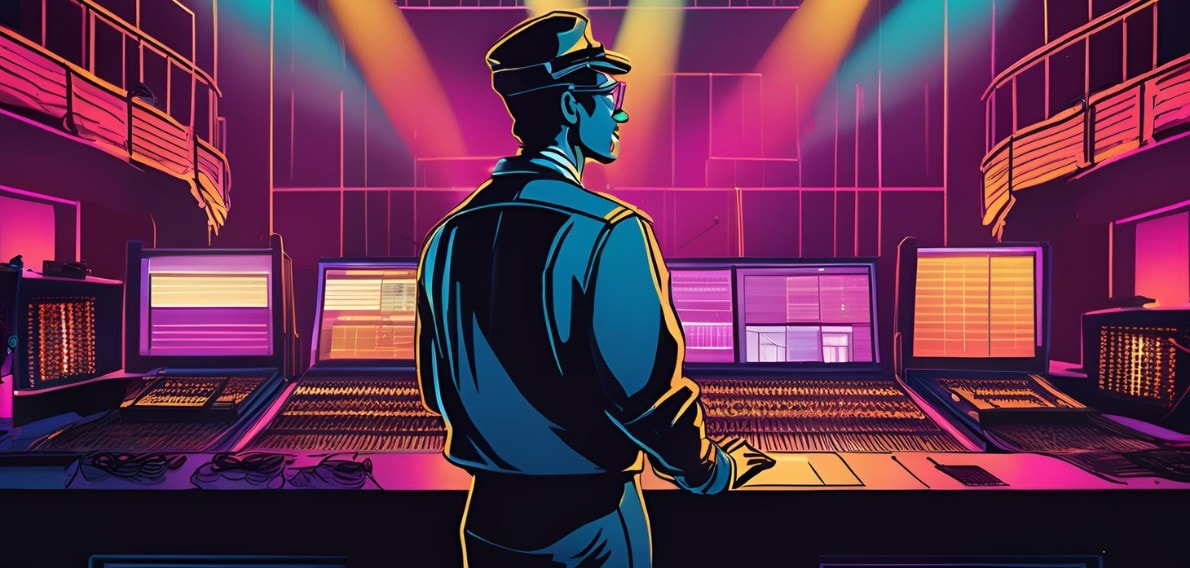
Environmental consciousness has become integral to modern stage management, with zero-paper digital documentation systems leading the way in resource management. Carbon-neutral lighting and sound equipment, alongside bio-engineered set materials, have transformed how productions approach their environmental impact.
Advanced waste reduction strategies now incorporate internal recycling programs and molecular-level material reconstruction for props, while carbon-negative strike procedures ensure that productions leave a positive environmental legacy.
Essential Skills for Modern Professional Stage Managers
Technical Proficiency

Modern stage managers must maintain a comprehensive understanding of quantum computing basics and neural network programming fundamentals, alongside advanced system troubleshooting capabilities. Expertise in holographic control systems, spatial audio operation, and mixed reality technology has become essential for success in the field. This technical foundation enables stage managers to effectively utilize and troubleshoot the advanced systems that power contemporary productions.
Also Read: How Wireless Technology Will Lead Your Events To Success
Soft Skills and Leadership
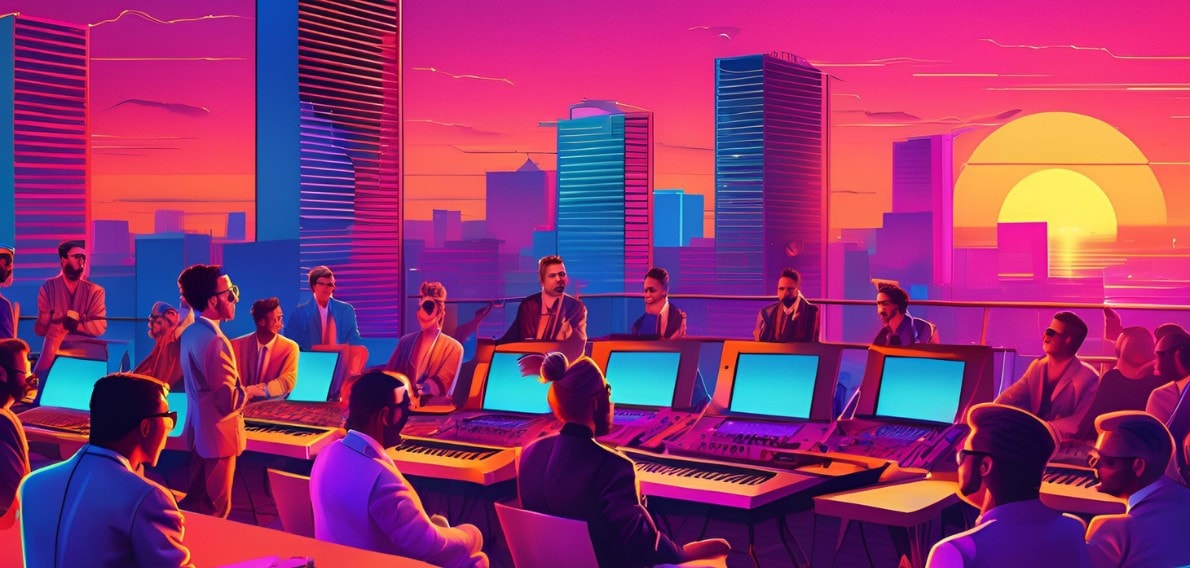
The human element remains crucial in stage management, with multi-dimensional communication strategies and cross-cultural conflict resolution skills becoming increasingly important in our globally connected industry. AI-augmented decision-making capabilities complement traditional leadership qualities, while team motivation in virtual environments requires new approaches to personnel management. Quantum crisis management techniques have revolutionized how stage managers handle unexpected situations, ensuring shows continue smoothly despite any challenges that arise.
Organization and Planning

Today’s stage managers excel through their mastery of predictive timeline development and neural resource allocation systems. Quantum risk assessment tools have transformed how productions prepare for potential issues, while AI-driven contingency planning ensures that every possible scenario is accounted for. These advanced organizational capabilities allow stage managers to maintain precise control over increasingly complex productions.
Career Development and Resources for Stage Managers
As a stage manager, career development is crucial to stay up-to-date with industry trends, best practices, and new technologies. Here are some resources to help stage managers advance their careers:
- Professional Associations: Joining professional associations like the Stage Managers’ Association (SMA) or the United States Institute for Theatre Technology (USITT) provides access to networking opportunities, workshops, and conferences. These organizations offer valuable resources and support, helping stage managers stay connected with the industry and learn from their peers.
- Workshops and Conferences: Attend workshops and conferences to learn from industry experts and network with peers. These events provide opportunities to gain new skills, share experiences, and stay informed about the latest developments in stage management.
- Online Courses and Tutorials: Several reputable websites offer online courses and tutorials on stage management, theatre production, and related topics. These platforms provide flexible learning options, allowing stage managers to enhance their skills and knowledge at their own pace.
- Mentorship Programs: Many professional associations and theatres offer mentorship programs, pairing experienced stage managers with newcomers to the field. These programs provide valuable guidance and support, helping new stage managers navigate the challenges of the profession and develop their careers.
- Industry Publications: Stay current with industry publications to stay informed about the latest trends and best practices. These publications offer insights into the industry, featuring articles, interviews, and case studies that can inspire and inform stage managers.
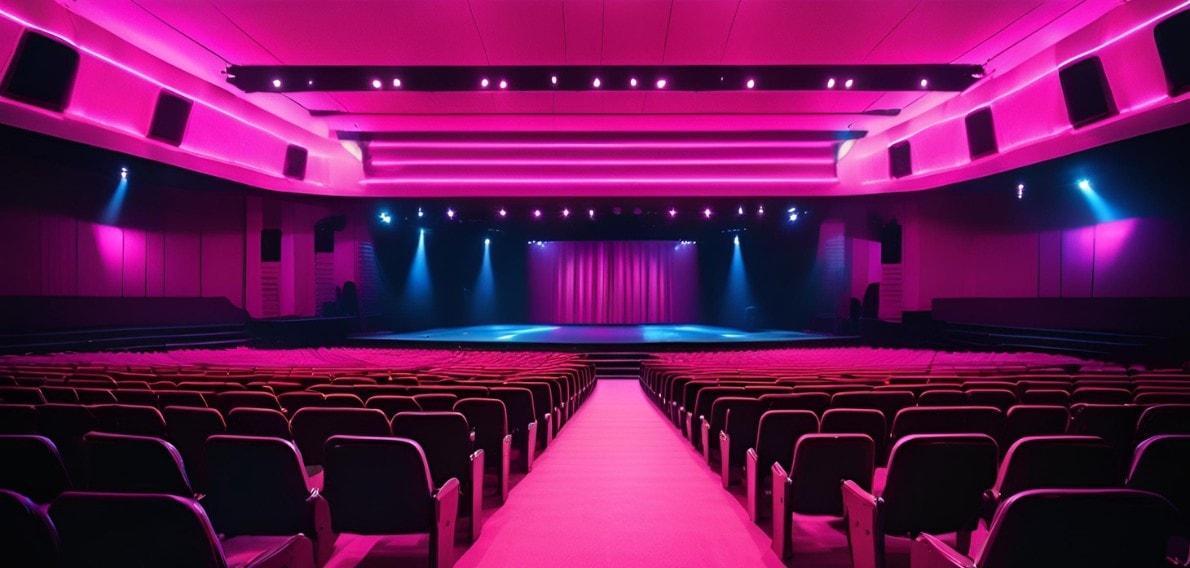
By investing in career development and staying connected with the stage management community, stage managers can advance their careers, expand their skill set, and contribute to the success of their productions. Continuous learning and professional growth are essential for staying competitive in the ever-evolving field of stage management.
The Future of Stage Management

As we continue through 2025, stage management continues to evolve, combining traditional expertise with quantum-era technology. Neural interface integration and quantum holographic tools are becoming commonplace, while 6G connectivity and molecular cloud computing push the boundaries of what’s possible in live entertainment.
Mixed reality event models and quantum international collaboration have opened new possibilities for creative expression, while carbon-negative production standards and neuromorphic automation systems ensure sustainable, efficient operations.
The modern stage manager stands at the intersection of tradition and innovation, balancing timeless principles of live performance with cutting-edge technology. Success in this evolving field requires a commitment to continuous learning, adaptability, and excellence in both technical and interpersonal skills.
Whether managing traditional theater productions, innovative mixed reality events, or groundbreaking quantum experiences, stage managers remain the essential force behind successful live entertainment, shaping the future of performance one show at a time.
You May Also Like:
How to Use RFID for On-Site Event Payments and Access Control: Benefits and Best Practices
Facing The Future Of Event Technology Through Immersive Experiences
How Revolutionizing Events With Hybrid Formats Provide More Opportunities For Promoters
